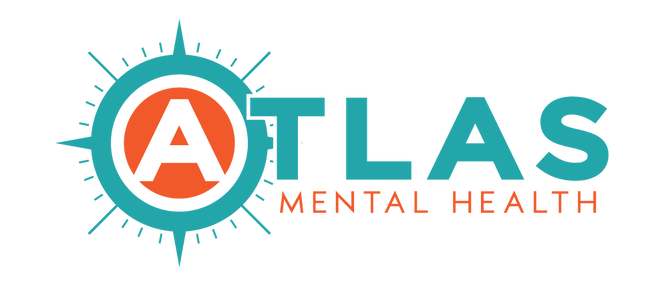There are a lot of titles. Psychologist, Psychiatrist, Social Worker, Counselor, Therapist… What are you? What’s the difference?
First, an overview of what everything is:
When it comes to the differences between psychologists, social workers and counselors, in my experience, the differences aren’t likely to be things you see as part of the counseling process. Generally, the differences lie in the focus of a person’s education, but we’re all capable of providing high quality and effective therapy.
Life coaches focus on immediate, lifestyle-related concerns, such as organization, goal setting, and wellness; however, the services they provide are not therapy.
Now, as far as what I do? I am a counselor first and foremost. It would also be accurate to call me a therapist, a clinician, or a mental health practitioner. However, I do not have a PhD or medical degree, so I cannot call myself ‘Doctor’ or prescribe medications.
Other acronyms you might see for all levels of practitioners:
My full title is Emily Decker, MS, CRC, LPC. This means that I have a Master’s degree, I am a Certified Rehabilitation Counselor (meaning I have passed the CRC Certification exam), and have met all of the requirements to be a licensed counselor in the state of Oregon.
Other websites with more information, if you're interested:
If you have any more questions about this process, or my certification, I’m happy to answer them during our appointment time.
Please note, this article is based on my own experiences as a practitioner in Oregon, and is not meant to be exhaustive on a global or national scale.
- Clinician and practitioner are fairly interchangeable terms that can apply to any level of training. Generally, these refer to anyone with related education who works with people on medical or mental health concerns in a therapeutic or medical setting.
- Therapist is a general term for someone who provides therapy. This can mean the standard type of talk therapy, but it can also include things like art therapy, music therapy, etc. Basically, a therapist is a person who uses interventions to treat mental health conditions. Sometimes, the use of the term “therapist” or “psychotherapist” may be restricted to specific educational training or licensure. Some people may also refer to physical or occupational therapists as simply “therapists”, but I’ve never actually met one of those professionals who refers to themselves that way. (I’m sure they’re out there!)
- Psychiatrists generally have MD or DO (Doctor of Osteopathy) after their name. They’re medical doctors who specialize in mental health and medications. Some psychiatrists see people for therapy sessions, some do not. Psychiatric Nurse Practitioners, Physician's Assistants, and regular old doctors can also prescribe mental health medications.
- Psychiatric Nurse Practitioners are registered nurses – RN’s – who have lots of extra school that allows them to also prescribe medications. These practitioners may have some training in therapy, but tend to act in a more medical capacity.
- Psychologists generally have PhD or PsyD after their name. One of the major differences between PhD and PsyD is that during the course of getting their degree, PhD programs tend to focus more on research, while PsyD programs tend to be more focused on clinical practice (aka, face-to-face counseling) and theory. Both are perfectly capable of providing standard therapy. Additionally, the term psychotherapy is often reserved exclusively for psychologists and psychiatrists to use to describe their practice.
- Social Workers usually have Master’s degrees, and their education may focus more on systems work (ie, looking at people as parts of communities and groups) and social justice issues. They can work as therapists, and in general, provide very similar services to counselors.
- Counselors also have Masters degrees, though some have PhDs. They have similar training to social workers, but their education generally focuses on clinical practice itself. Often, counselors wind up with a lot of experience working with clients over the course of their education.
- Life Coaches are people who provide advice and coaching related to personal and professional goals. They are not therapists, and do not provide therapy. Becoming a life coach does not require any form of advanced degree; however, there is a certification/accreditation process that can be pursued. They do not treat mental health conditions, and generally do not work on past issues and concerns with their clients. Generally, they have not received training in psychology, but rather training geared towards productivity, motivation, and goal setting.
When it comes to the differences between psychologists, social workers and counselors, in my experience, the differences aren’t likely to be things you see as part of the counseling process. Generally, the differences lie in the focus of a person’s education, but we’re all capable of providing high quality and effective therapy.
Life coaches focus on immediate, lifestyle-related concerns, such as organization, goal setting, and wellness; however, the services they provide are not therapy.
Now, as far as what I do? I am a counselor first and foremost. It would also be accurate to call me a therapist, a clinician, or a mental health practitioner. However, I do not have a PhD or medical degree, so I cannot call myself ‘Doctor’ or prescribe medications.
Other acronyms you might see for all levels of practitioners:
- PhD/PsyD- Doctoral level degree
- MS/MA – Type of Masters degree (Master of Science / Master of Art)
- LMFT – Licensed Marriage/Family Therapist
- LSW/LCSW – Licensed (Clinical) Social Worker
- LPC [Intern] – Licensed Professional Counselor [Intern]
- Note: The “intern” status means a clinician is still in the process of fulfilling the requirements for licensure. In the state of Oregon, this includes having already completed an appropriate graduate degree, passing a licensure exam, passing an exam related to Oregon-specific rules and regulations, and accruing 2,400 hours of supervised therapy hours. This process usually takes between 2 and 7 years, after completing a Master's Degree program, in the state of Oregon.
- RAT – Registered Art Therapist
- CADC I/II – Certified Addictions/Drug Counselor
- CRC – Certified Rehabilitation Counselor
- NCC/NBCC - Nationally (Board) Certified Counselor
- There are others – many others. If you don’t recognize something, search engines are your friends!
My full title is Emily Decker, MS, CRC, LPC. This means that I have a Master’s degree, I am a Certified Rehabilitation Counselor (meaning I have passed the CRC Certification exam), and have met all of the requirements to be a licensed counselor in the state of Oregon.
Other websites with more information, if you're interested:
- American Psychiatric Association (APA): Official organization representing Psychiatrists in America. Section entitled: 'What Is Psychiatry?'
- American Psychological Association (also APA): Official organization representing Psychologists in America. Check out their definition of 'Psychologist.'
- American Counseling Association (ACA): Official organization representing Counselors in America. Learn about what counselors do.
- National Association of Social Workers (NASW): Official organization representing Social Workers in America. (HelpStartshere.org is created and maintained by the NASW.) You can find the official NASW website here.
- International Coach Federation: Coaching FAQs.
If you have any more questions about this process, or my certification, I’m happy to answer them during our appointment time.
Please note, this article is based on my own experiences as a practitioner in Oregon, and is not meant to be exhaustive on a global or national scale.


 RSS Feed
RSS Feed